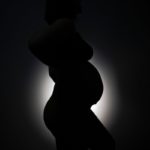
There’s a women’s health crisis brewing.
A new study conducted by the Population Reference Bureau, a nonprofit that partners with the U.S. Census Bureau to crunch data and uncover gender and economic issues, finds that women’s overall health and wellness is declining – significantly.
Millennial and Gen Z women – those who were ages 25 to 34 between 2019 and 2021 – are especially at risk, owing to a noxious combination of physical, social and emotional factors: an ongoing pandemic, the erosion of abortion access, social media sites rife with harmful content, and inflation, among other worrying trends.
The result? Quantifyably surging maternal mortality, homicide and suicide rates – with young women of color bearing the brunt. “[T]he threat of preventable death looms large for today’s young women as homicide, suicide, and maternal mortality rates surge,” researchers wrote. “These factors dispel the notion that today’s young women are doing better than the generations before them. That promise, at least for now, is woefully unfulfilled.”
Indeed, the situation is worsening despite significant gains in educational and professional accomplishments among women in these age groups.
“Young women today are obtaining college degrees and entering the workforce in record numbers to achieve their generation’s version of the American Dream,” Diana Elliott, vice president at the PRB, told ABC News. “But structural barriers to health and safety are preventing many of them from reaching their full potential.”
Climate change plays a role, too. “As the climate crisis deepens, climate-related anxiety, as well as first-hand experience with natural disasters such as wildfires, will likely have increasingly negative impacts on young women’s mental and physical health and well-being,” researchers say.
As a result, younger generations of women are now “at the highest risk of early death since at least the 1970s.”
While the findings are discouraging, experts at the PRB note that understanding the situation is, all the same, critical. As they wrote in the study: “We cannot fully untangle why outcomes may be different across generations, but that fact should not diminish the importance of understanding change over time for young women in the United States.”



